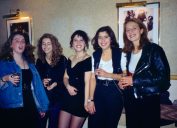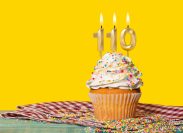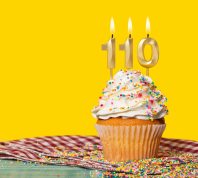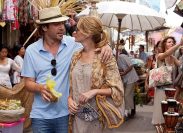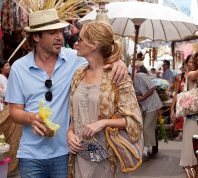Old Slang Terms Kids Born After 2000 Will Never Understand
These vintage slang terms from the 20th century are sure to go over the younger generation's head.

When it comes to millennial and Gen Z vocabulary, there's a lot to take in. Your partner is your bae? And if something slaps, that's a good thing? Got it… kind of. But just like their slang terms can seem like a foreign language to the older generations, if they traveled back to a time before the year 2000, they might have no idea what anyone was talking about either. When referring to shade these days, it's not such a good thing. But back in the day, you actually wanted to be made in the shade. Whether you once used these old slang terms and need a refresher, or you've never heard them before, these are the vintage slang words and phrases people born after 2000 will never understand. And for some lingo you need to lose after once you reach a certain age, check out These Are All of the Slang Terms You're Too Old to Use After 40.
1
Hit me on the hip
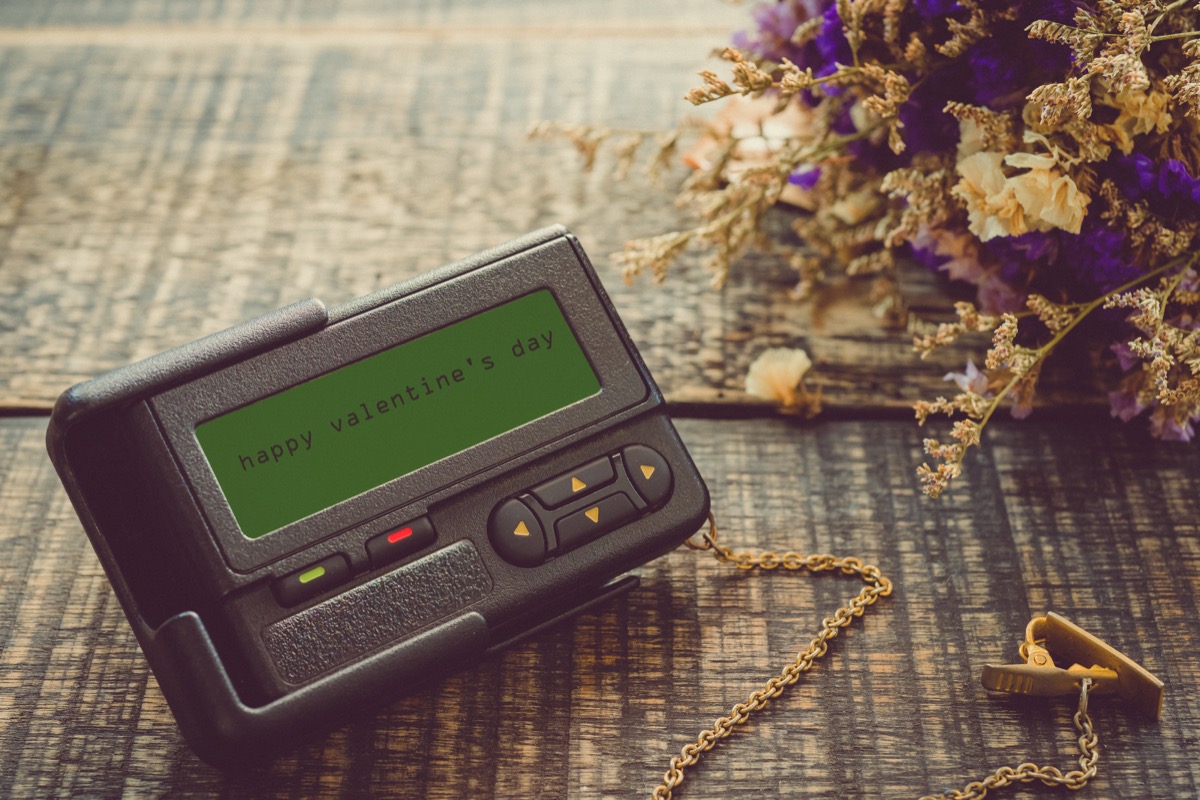
Hit me on the hip is an example of old slang not making sense anymore in modern terms. If you told someone to "hit me on the hip," you were telling them to "page me," since pagers were placed on the hip. But since pagers aren't around anymore, this slang phrase lost usage and meaning. And if you're still rocking that flannel and blasting grunge music in your car, check out 20 Slang Terms From the 1990s No One Uses Anymore.
2
See the dinosaur

If you are seeing the dinosaur, it means you're seeing things that aren't there, like dinosaurs. This '90s slang term specifically described the act of "completely misunderstanding" something. And for dictionary definitions from the disco era, check out The Best Slang Terms from the 1970s That Aren't Cool Today.
3
Made in the shade

Shade these days is not a good thing. However, back in the '90s, people strived to be made in the shade. This slang expression meant "to have a very easy life" or "to be in a very good situation." For instance, many people think celebrities have it made in the shade.
4
Clyde

All those named Jake may be happy about their slang counterpart, but there may be a reason you don't see many Clydes anymore. Back in the day, clyde was actually a slang term used to describe a "stupid, inept, or boorish person." And that's not exactly something you want associated with your name. And for a timeline of the most popular terms in history, This Is the Most Popular Slang Word the Year You Were Born.
5
Monet
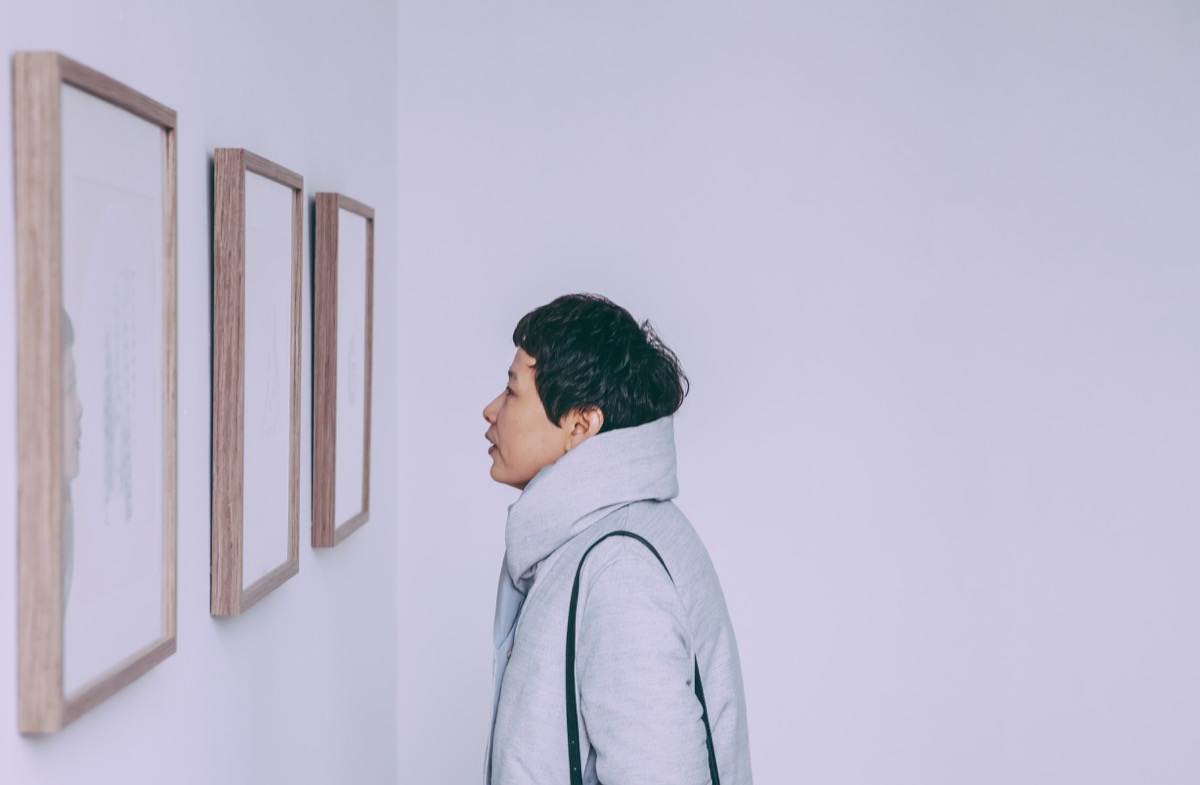
Ah, there's nothing more beautiful than a Claude Monet painting—that is, until you look up close. Just like a Monet painting is beautiful from far away, but a little rough around the edges when looked at more closely, the slang phrase monet was used to describe a "person who is attractive from a distance, but unattractive on closer inspection."
6
Cut the mustard

Sorry ketchup, it's all about cutting the mustard. This slang phrase, often used in the 20th century, references someone "reaching or surpassing the desired standard or performance" for something. More commonly, however, people would use it in a negative way—saying someone couldn't cut the mustard.
7
A bear

You don't want to be in front of a literal bear, but you don't want to be in a bear either. The slang phrase describes something that is "very difficult" or the act of "being in a tough or unfortunate situation." So, say you were taking a hard test, you could say it was a real bear. And for those who grew up in the colorfully clad '80s, check out The Best Slang Terms From the 1980s That Aren't Cool Today.
8
Egghead

Being called an egghead doesn't necessarily sound like a good thing. However, if you consider that the slang term means someone who is "brainy" or has "intellectual interests," you might think differently. To be fair, though, people would often use the term egghead to speak negatively about smart people.
9
Jake

Good news to all the Jakes out there—you're all right, literally! Back in the 1910s, jake wasn't just a name, but also a slang term that meant "all right" or "fine." We hope you're happy, Jake Gyllenhaal! And for more on culture, entertainment, health, and more, sign up for our daily newsletter.
10
Bank's closed

Sure, kids these days probably know that banks are closed on holidays and Sundays. But in the 1920s, the slang phrase bank's closed had nothing to do with where you got your money from. Instead, this meant "no kissing" or "no making out." So you could tell that guy you're not interested in or that couple getting a little too into PDA, "Hey, bank's closed!"
11
Glad rags
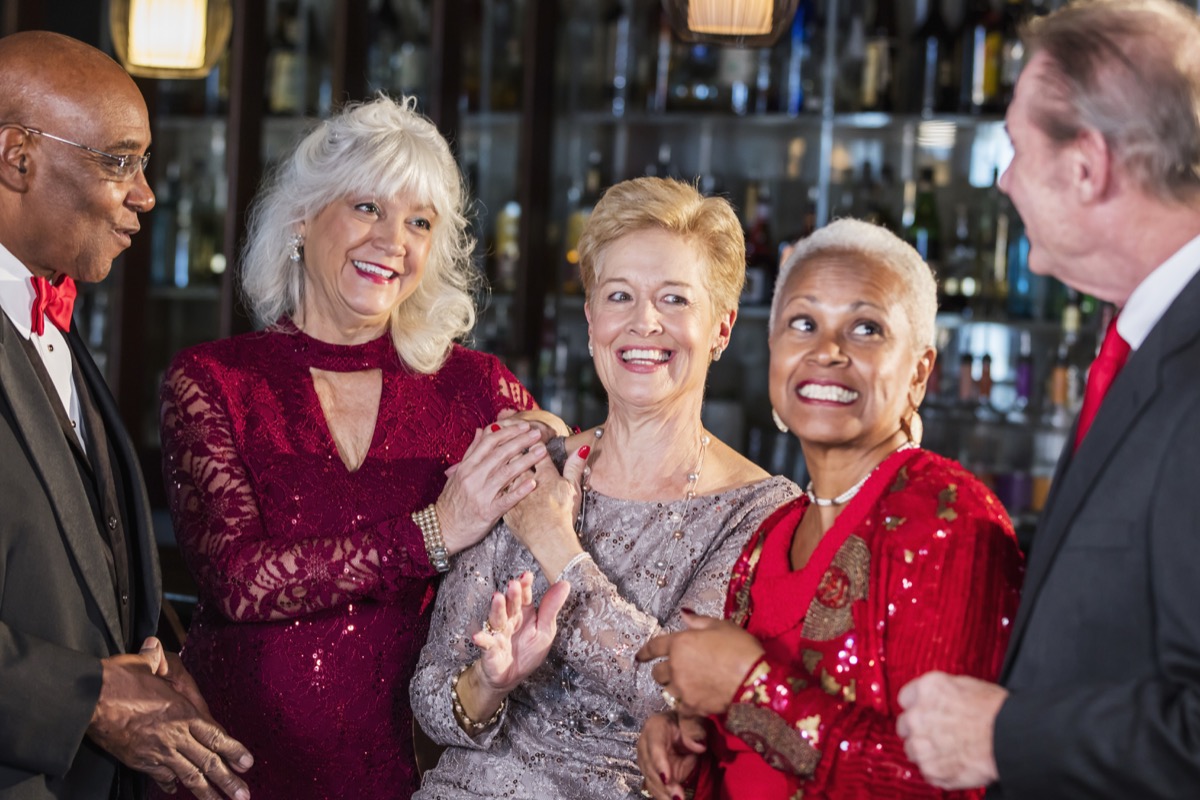
The phrase glad rags draws forth visions of old clothes you're happy and comfortable to be in, like a pair of raggedy sweats on a weekend morning. But actually, this meant the complete opposite. In the 1920s, your glad rags were your "nice, dressy clothes" that you typically wore "to a party or other social event."
12
Humdinger

Humdinger may sound like a foolish word, but it's not meant as such, by any means. This Scottish-based word became slang in the mid-20th century as a way to describe something as "striking" or "extraordinary."
13
Duck soup

If you were around in the '30s, you would know all about duck soup—and it's got nothing to do with food. Instead, the popular slang term—which was also the name of a beloved 1930s movie featuring the Marx Brothers—describes something that is "easy to do" or "an easily accomplished task."
14
Hoosegow
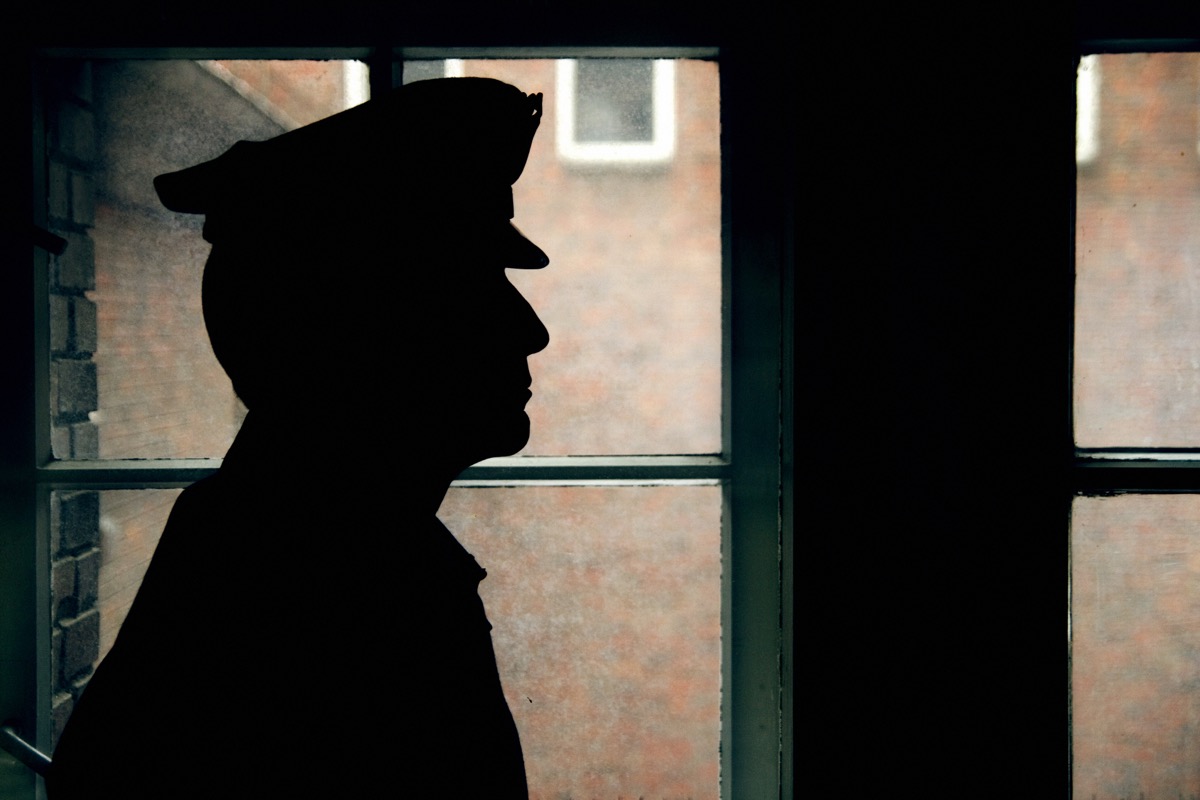
Slammer. Hole. Joint. There are plenty of nicknames these days for being behind bars. But back in the day, the main slang term for "jail" was hoosegow, which was a word first used in 1909, according to Merriam-Webster.
15
Fracture

These days, you might think of fracture in terms of injuring a bone. But in the 1940s, this term was all about smiles and laughter. If you fractured someone, it meant you made them "laugh," or "amused" them greatly.
16
The sticks
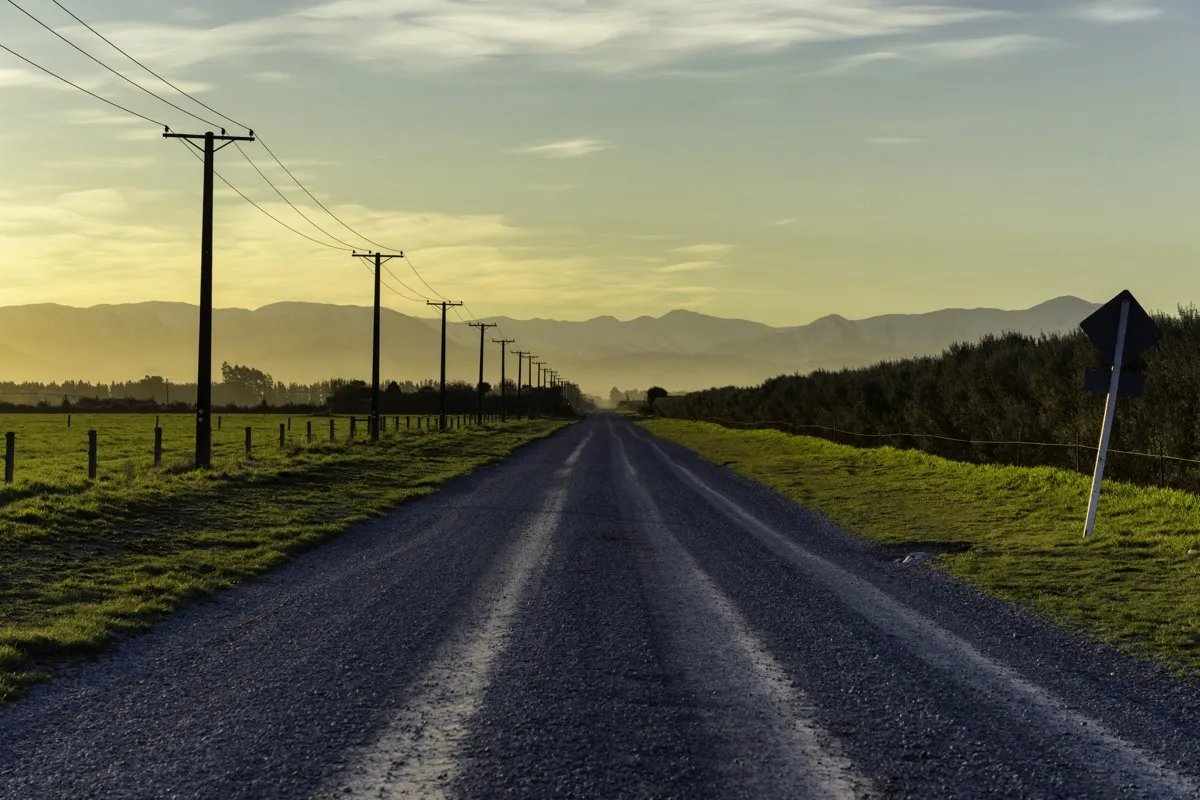
If you're someone who prefers the finer things in life, you don't want to get stuck in the sticks. This '40s slang term was another way to say "the boondocks" or "country," meaning a "remote, rural area" that is greatly "removed from civilization."
17
Natch

Natch is a simple slang term, yet not used much anymore. The 1940s word means exactly what it sounds like: a shortened version of the word "naturally," used in place of "of course."
18
Church key
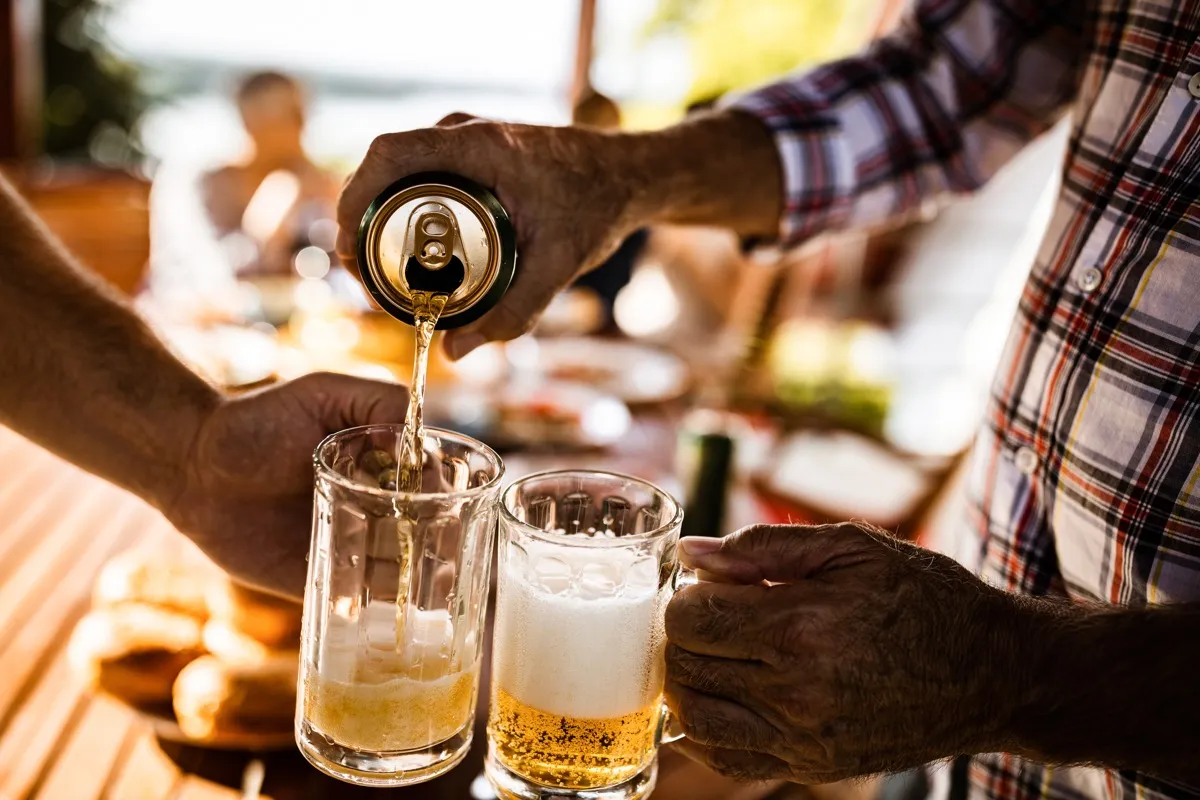
There's nothing "church-like" here. Instead, in the '50s, if you were asking someone for a church key, you were looking for a beer can opener. After pop tops were manufactured, the use of this tool—and subsequent slang term—steadily declined.
19
Plugola
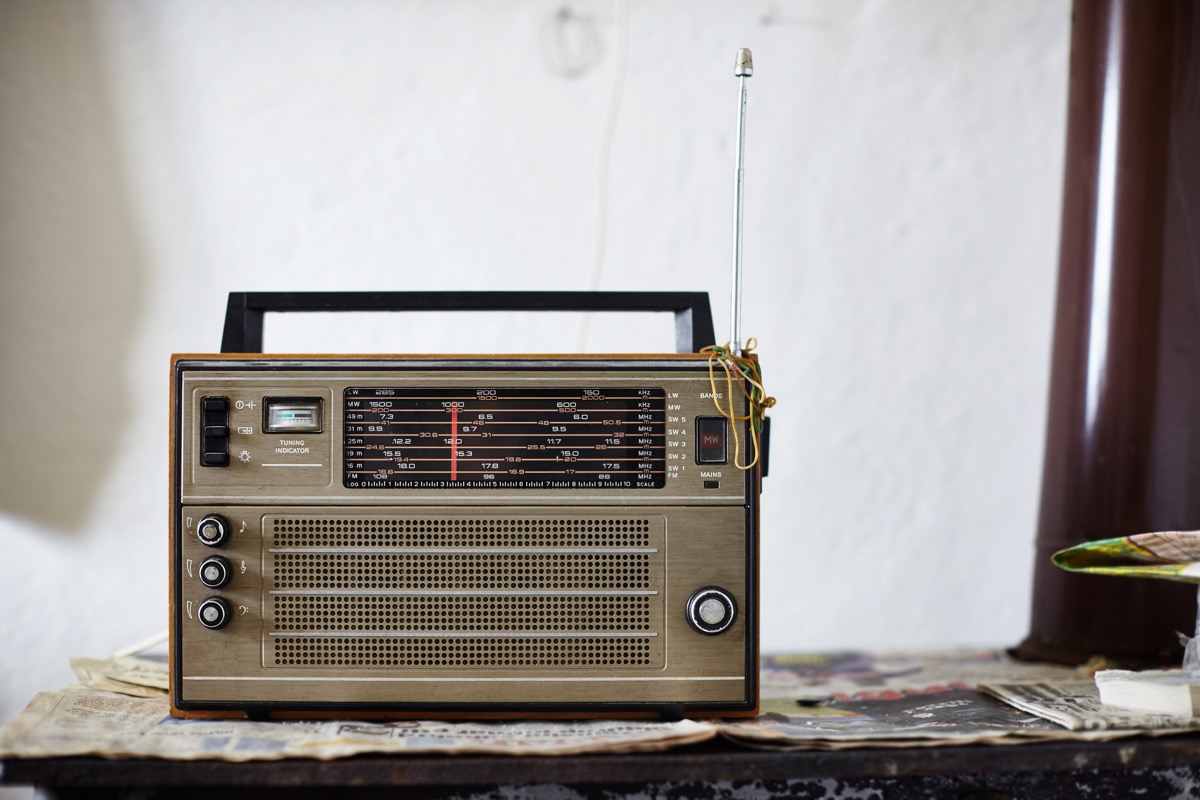
Plugola is all about trying to "plug" someone or something, in ways that aren't by the rules. The slang term, commonly used in the '50s, specifically referred to "incidental advertising on radio or television that is not purchased like regular advertising."
20
Buy it

In terms of this '60s slang, you're not actually "buying" anything—unless you mean buying an early trip to the grave. The phrase buy it actually means "to die." For instance, if you don't slow down when you drive, you're gonna buy it in a wreck.
21
Hip-shooter

No reference to guns here: Hip-shooter is all about about shooting off at the mouth. This slang term from the mid-20th century refers to someone who "acts or talks in a rash, impetuous way."
22
Out to lunch

We would love to be out to lunch in the modern sense, perhaps at McDonalds or Olive Garden—but, back in the day, it wasn't exactly something you were aiming for. If someone said you were out to lunch, it meant you were "confused" or "clueless" as to what was going on.
23
Barnburner

Putting the words "barn" and "burner" together doesn't exactly bring forth good images. However, this old slang term actually means something good—referring to "something that is highly exciting" or "impressive." Typically, many people would refer to a close and well-played sports game as a barnburner.
24
Frosted

Frosted in a slang sense has nothing to do with cold weather or decorating a delicious cake. Instead, this '80s slang term meant you made someone "angry" or "mad."
25
Scenester
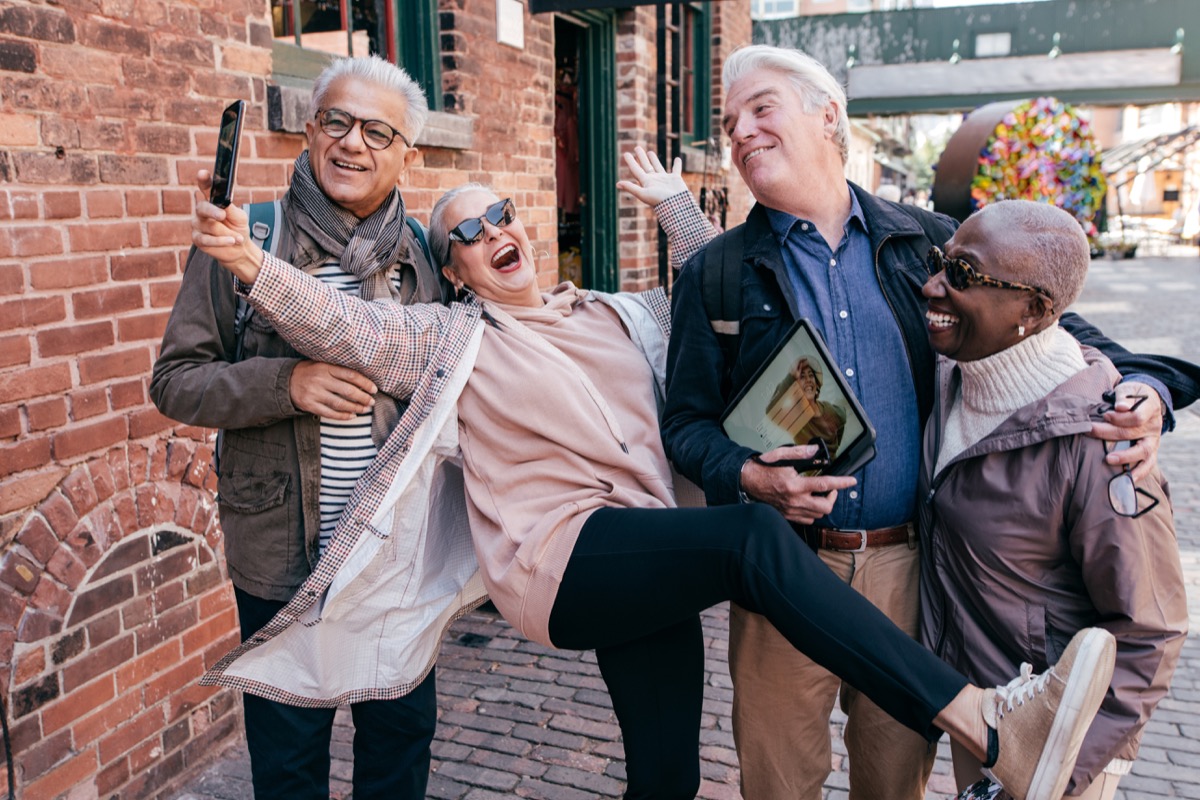
If you're a scenester, you're always "in the scene." This '80s slang term described someone who would either try extremely hard or bounce from group to group just to fit a specific, popular "social culture." These days, you might describe this person as a "phony" or "fake."
26
Caramello

No, we're not talking about the delicious chocolate bar of the same name. In the '90s, if you said you were caramello, it meant you were extremely "busy" with a "full schedule."
27
Cheese-balled

This, unfortunately, has nothing to do with food either. This '90s slang term derives from the notion of being "cheesed off" or "annoyed." If you were cheese-balled, you were annoyed because you were "under a great deal of stress."
28
Circle

Married. Tied the knot. Circled. They all mean the same thing. If you were to circle someone back in the day, you were marrying them. This most likely derives from the idea that you're connected to your partner after marriage, like in a literal circle.
29
Get bent

Get bent was another way to say "Absolutely not!" or "Are you crazy?" This popular old slang phrase was a simple, concise way to end a conversation and dismiss what someone was saying or asking.
30
Dragon

The term dragon was used a lot in '90s slang, like in phrases such as "got the dragon." But the word itself simply described "bad breath." So, if someone told you that you "got the dragon," they were telling you your breath smelled.


